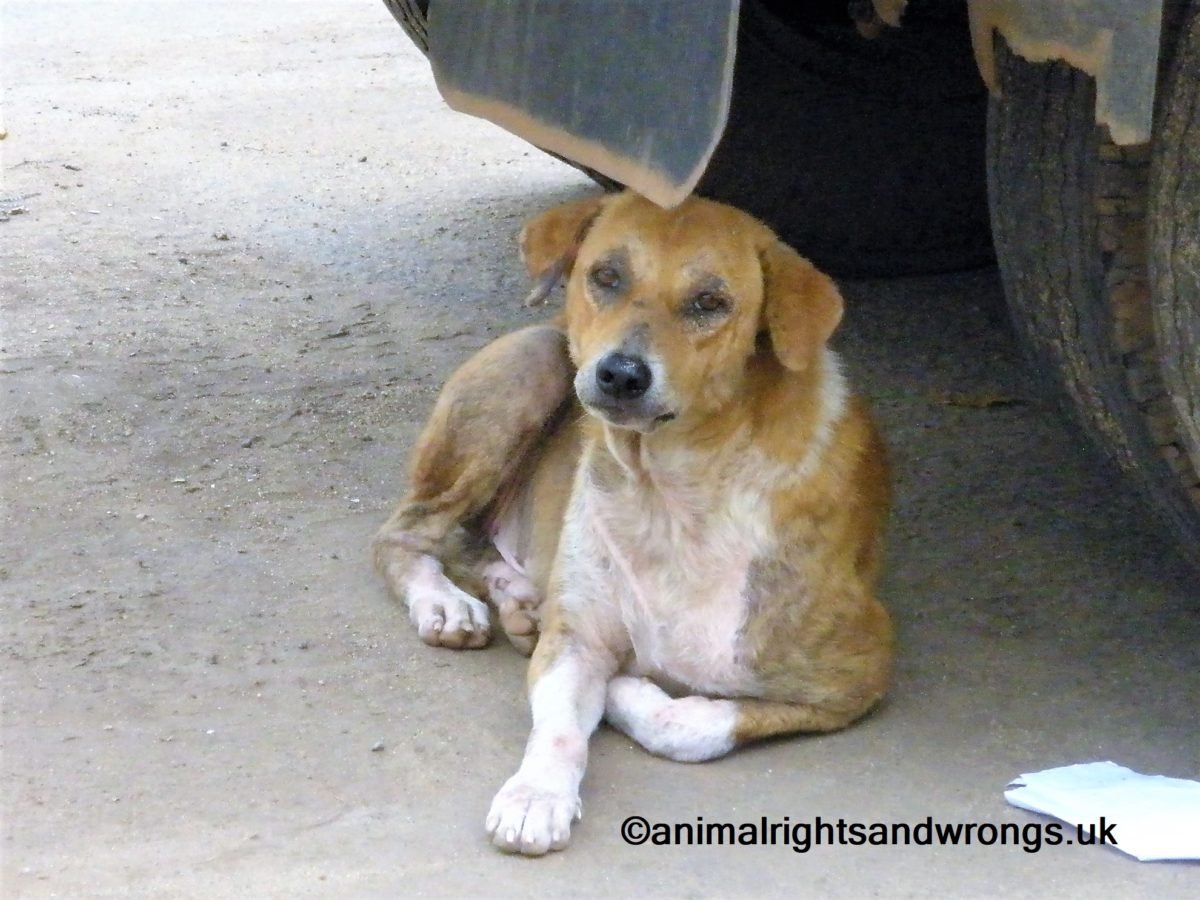It is estimated that tens of thousands of rescue dogs are imported into the UK from the EU each year, a third of them apparently from Romania, but is it sensible and fair on the dogs?
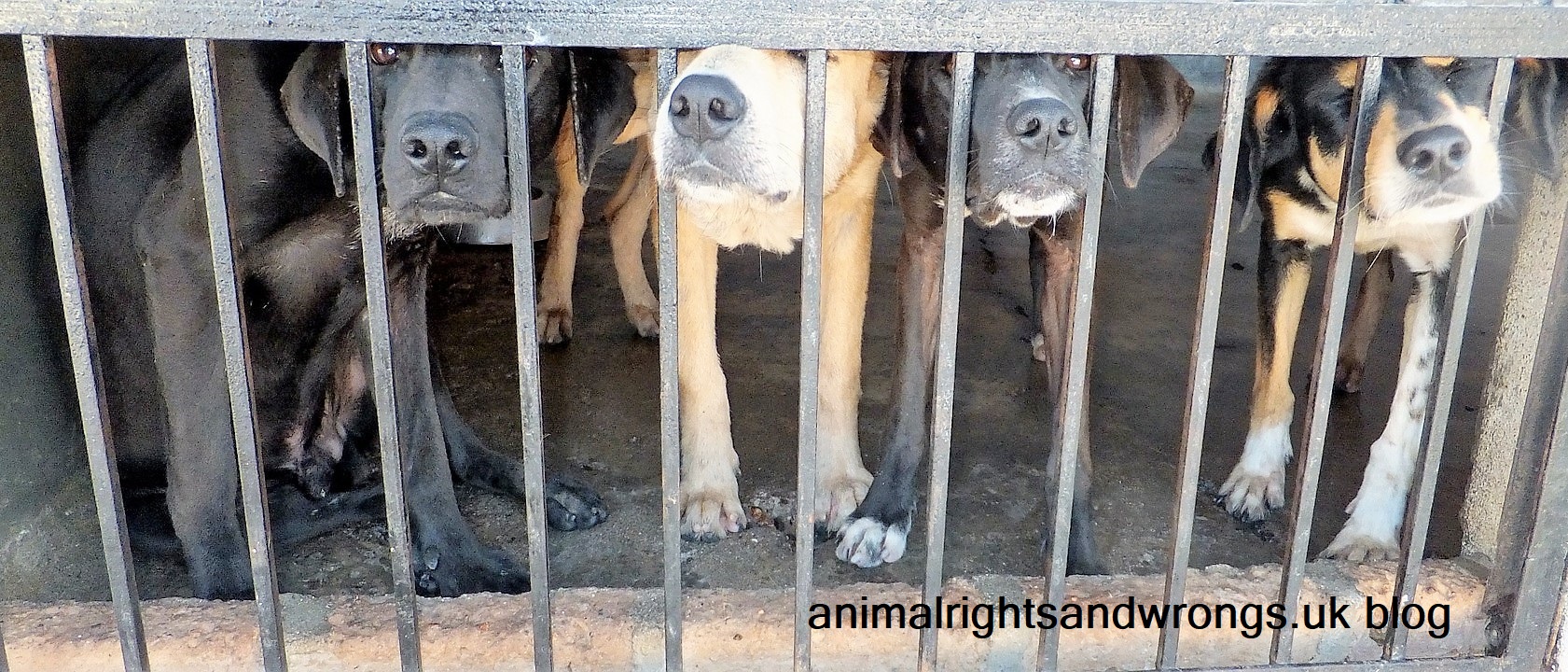
There has been an increasing trend in rescuing dogs and cats from foreign countries and transporting them into the UK, USA and Canada. Many people blame the strict adoption rules and costly adoption fees of UK re-homing charities for the popularity of adopting immigrant dogs and foreign bred puppies. Recent UK Government figures show that the number of dogs imported under the Pet ravel scheme jumped from 152,075 in 2013 to 307,357 in 2018.
Following changes to the UK quarantine regulations in 2012 it has become a booming arm of the rescue industry. It has also developed into a craze or a fashion to do so fuelled as always by celebrities on social media Owners who give a home to the Mexican, Romanian or Spanish dog or cat obviously feel such rescues seem morally far more worthwhile, honourable and exciting with the bonus that they can boast to their friends that ‘I rescued the unfortunate thing from Romania’.
British vets believe sitiuation is dangerous.
The British Veterinary Association (BVA) has recently (November 2019) declared that they can be “trojan dogs“ bringing in life-threatening diseases and are urging the Government to introduce mandatory health checks.
The new UK “Lucy’s Law” aimed at ending puppy farming by restricting the sale of puppies and kittens to registered breeders and animal re-homing charities could have the side effect of increasing the trade in foreign import rescue animals and add to the number of charities being established.
As always there are reports that illicit ventures are cashing in on our wish to rescue dogs from abroad turning it into a commercial ‘trade’ whereby importers become pseudo rescue organisations, reaping rewards from importing and selling in the name of rescue.
The whole situation is another example of animal loving gone mad with too many wannabe animal saviours setting up dozens of small enterprises and charities to save dogs and cats from foreign streets.
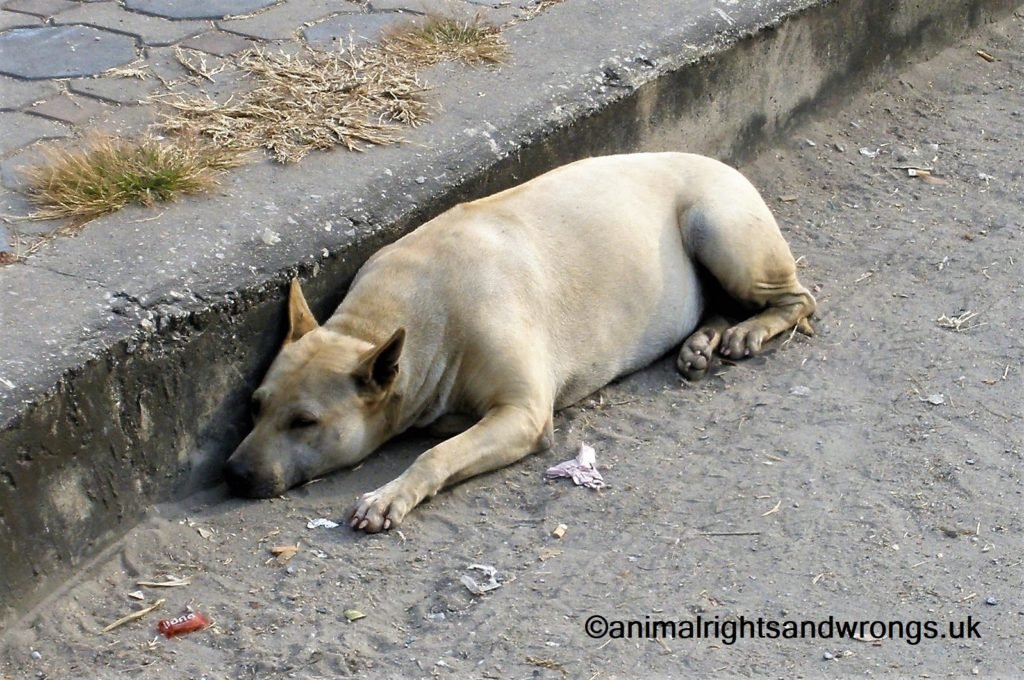
Although rescuing dogs from abroad is a laudable vocation, it is arguably an ill-conceived strategy mainly because transporting hundreds of dogs and cats at huge cost to countries that already have thousands of unwanted and stray dogs and cats, some of which end up euthanized, could be judged as a futile gesture and an ill-advised use of donated money. Dogs are still put to sleep in the UK, particularly those with behavioural problems, because of lack of homes and ability to rehabilitate them and many unfairly languish in rescue kennels for months or even years awaiting these mythical “forever” homes.
One major dog rescue charity once publicised a dog that had spent over 1,000 days in kennels before finding a home as a good news snippet, but is this an achievement to be proud of. Importing animals reduces the chances of ‘native’ animals finding new homes and extends their time incarcerated in kennels so realistically it might be better to concentrate on these before bringing more into the country.
Some question whether these dogs and cats need rescuing in the first place.
But this hasn’t stopped hundreds of small charities and outfits setting themselves up to save and rescue dogs and cats from abroad. Animals are arriving from countries such as Romania, Spain, Bulgaria, India, Thailand, Puerto Rico, China, Greece, Russia, and Mexico. Name any country perceived as ignoring and ill-treating their street dogs and no doubt someone is collecting them up and attempting to rehabilitate them into the ways of domestic pets.
There are critics who perceive a problem with this and question whether many of these dogs need rescuing in the first place as some street dogs in many parts of the world are part of society and accustomed to the lifestyle and freedom to roam and interact with other dogs. It is also pointed out that many local people support and tolerate them by feeding and looking out for them. Not all are looked upon as pests and ill-treated. I came across this situation forty years ago while attempting to set up a humane stray dog collection service for the government in Trinidad in the West Indies when locals became belligerent and hostile towards any dogs being removed from the streets.
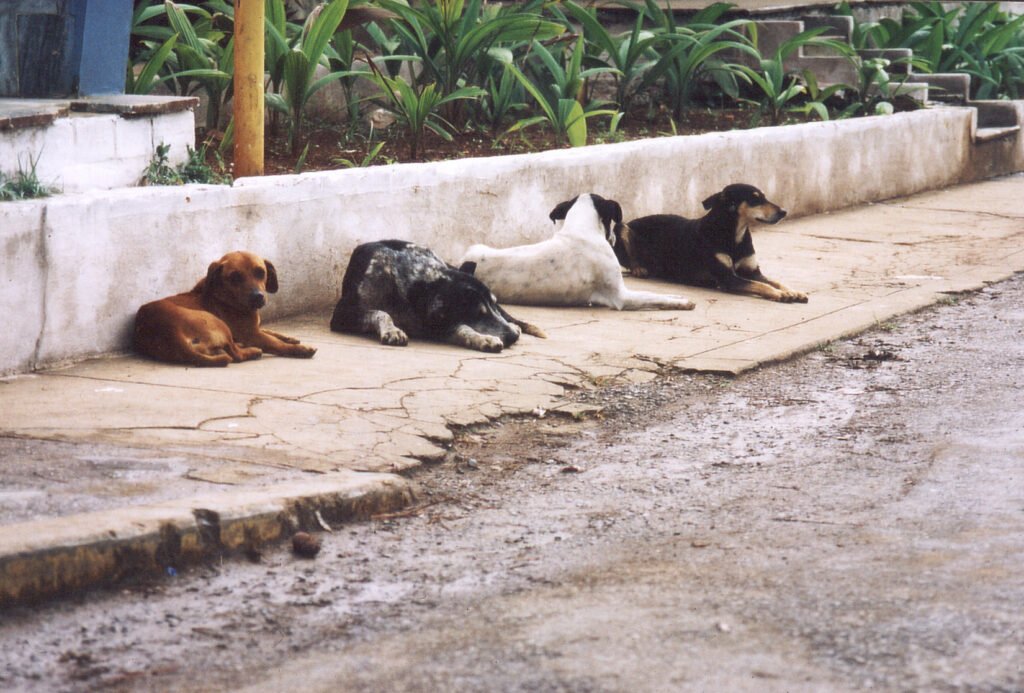
Although some will fall ill and suffer injuries, such issues are better dealt with in their own country and not removed half way round the world. Bringing dogs in doesn’t stop others being put to sleep as many dogs, despite socialisation attempts and behavioural training before being sent overseas, often cannot kick their feral habits. There have been instances of imported dogs being handed in to rescue homes and of running away from new owners.
Health risks to humans and other animals.
The veterinary profession and health authorities have worries about importing a variety of parasites, pathogens, worms and other diseases and many vets caution against allowing such rescues.
Although imported dogs and cats have a “Pet Passport” under the Pet Travel Scheme (PETS) the only requirements are for them to be vaccinated against rabies and tapeworm. But they can carry a multitude of potentially hazardous conditions that can affect humans and other animals. Eye worms and skin worms have been found in imported dogs and a variety of exotic ticks and parasites such as Leishmania infantum and Ehrlichia canis. Infected animals do not always show signs when adopted but can develop these life threatening conditions later and need a life-time of tests and treatment.
The USA has had leptospirosis and rabies scares by allowing hundreds of dogs in from Puerto Rico or across from Mexico. An organisation called Surfin’ Sato which rescues dogs from Puerto Rico recently had dogs put to sleep that tested positive for leptospirosis which is communicable to humans and stated, “our organization has decided to take a break from evacuating dogs while we evaluate the best strategy for ensuring everyone’s safety.” Health authorities had to track down all the people who had come into contact with the dogs at great expense.
Many dog charities question the validity of importing dogs from abroad.
It is not just health authorities that question the soundness of importing rescue animals, but other charities. We have a strange situation at the moment where some charities are increasingly “rescuing” dogs while other charities and organisations are trying to stop it from happening such as the EU Dog and Cat Alliance which has 80-member organisations across Europe including most of the UK dog charities. They believe:
- International rehoming of dogs is unsustainable in the long-term, only provides interim measures and doesn’t address the root causes in the countries of origin
- Presents a risk of spreading diseases across borders such as rabies, leptospirosis, tapeworm, parasitic infections, babesiosis and rickets from ticks, and Feline Immunodeficiency Virus (FIV) and FelineLeukemia Virus (FeLV) in cats.
- Dogs, and particularly cats, rescued from foreign fields often fail to settle and suffer stress due to their backgrounds.
Would money be better spent improving conditions in the countries of origin?
The organisations and charities who arrange these transfers can raise considerable amounts of money on the back of showing the plight of dogs on their websites languishing in atrocious conditions in government pounds or on the streets with the by-line that ‘this is why we do it’. This kind of funding-raising is incredibly effective as it tends to pull at the heart-strings of anyone who has got upset on holiday by the heart-rending sights of these poor miserable souls suffering from skin infestations, broken limbs and disease with little hope of any help. Realistically money would be better spent on improving the chances of these animals getting help and care in their own country, but this is a moot point.
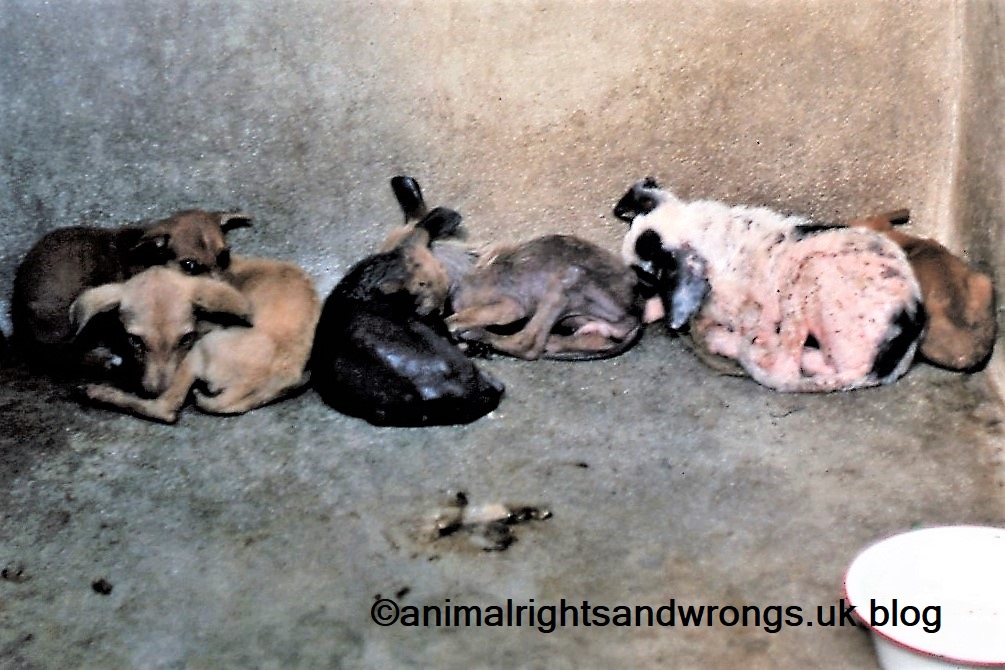
There are several international charities which are doing exactly that and who would welcome extra funding, but their work has little kudos associated with it and so those charities which export animals have the edge in raising funds as we are more drawn to the happy-ending stories of the few animals that are saved.
Many of the countries that animals arrive from are not “third world” or “developing” nations but are member EU states and it could be viewed as insulting to behave as though they are incapable or less capable of dealing with stray dog and cat problems. Let’s be honest the UK and USA have never been able to get on top of their stray and feral cat crisis’s and still have a problem with stray and abandoned dogs so who are we to criticise others. How would we like it if charities were opened in the UK to export our dogs and cats with pictures on websites showing how we were too uncaring and incompetent to look after them.
So does it make sense?
SO, does it make sense to import rescue dogs from foreign fields or streets? Probably not. Do these dogs impede domestic unwanted from finding new homes? Probably not. Are the oft stated risks and problems caused by these dogs overemphasized? Probably yes. It is undoubtedly a messy situation which causes considerable angst amongst various animal charities and the veterinary profession, but I’m sure you will get no argument from those individuals who have been saved from the wretched conditions they have been kept in certain countries and given the chance of a life worth living.
Blog updated November 2020
